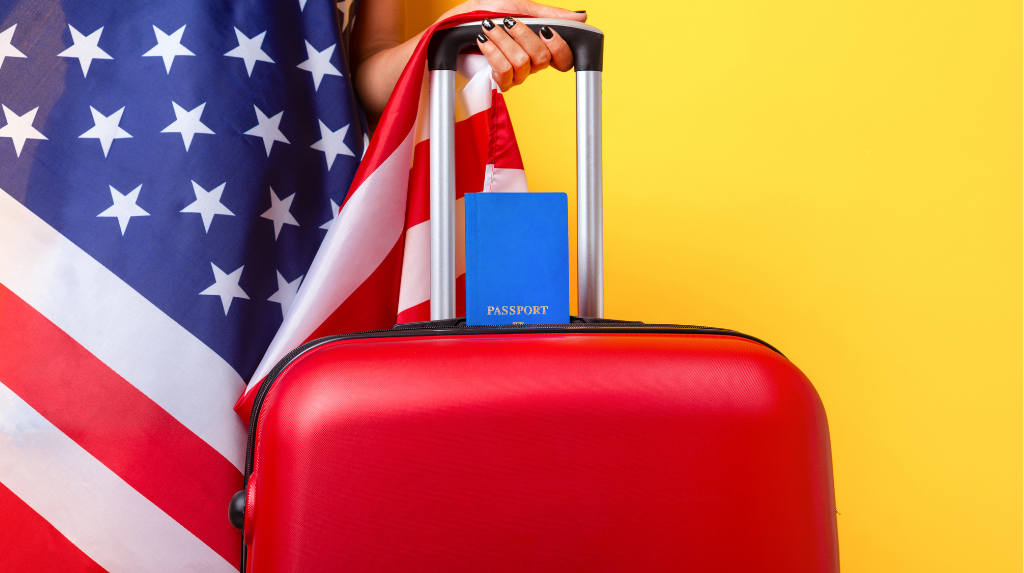When it comes to the intricacies of US visa applications, applicants often find themselves perplexed by the terms “visa refusal” and “visa denial.” Are they the same, or do they carry distinct implications? Understanding these differences is crucial for anyone seeking to visit or immigrate to the United States. In this article, we will delve into the nuances between US visa refusal and denial, shedding light on common misconceptions and providing essential insights to navigate the visa application process with confidence.
Is US Visa Refusal the Same as Denial?
US visa refusal and denial are terms that are sometimes used interchangeably, but they have different implications. Let’s explore the key distinctions between the two:
US Visa Refusal: Understanding the Basics
Visa refusal refers to the situation where a consular officer denies the issuance of a visa to an applicant based on specific grounds. These grounds may include incomplete documentation, ineligibility under the chosen visa category, or concerns about the applicant’s intentions during their stay in the US.
US Visa Denial: A Closer Look
On the other hand, visa denial is a broader term that encompasses various scenarios. It refers to instances where a visa application does not meet the necessary requirements and fails to establish eligibility for the visa category. Denial can occur due to reasons such as criminal history, misrepresentation, or lack of sufficient ties to the home country.
Reasons for US Visa Refusals
While visa refusal can happen for various reasons, some common grounds include:
- Incomplete Documentation: Failure to provide all required documents as per the visa application guidelines.
- Lack of Strong Ties: Inability to demonstrate significant ties to the home country, raising concerns about potential overstay.
- Criminal Records: Previous convictions or involvement in criminal activities can lead to a visa refusal.
- Ineligibility: Not meeting the specific eligibility criteria for the chosen visa category.
- Health-Related Issues: If an applicant poses a health risk to the public or lacks required vaccinations.
Consequences of US Visa Refusal
Facing a US visa refusal can be disheartening and may raise concerns about future applications. Some consequences of visa refusal include:
- Loss of Application Fees: The application fees paid are generally non-refundable even in case of refusal.
- Impact on Future Applications: Multiple visa refusals may negatively impact future visa applications.
- Extended Delays: Dealing with a refusal can lead to delays in travel or relocation plans.
Overcoming a US Visa Refusal
While a visa refusal can be discouraging, it is essential not to lose hope. Here are some steps to overcome a visa refusal:
- Understanding the Reason: Obtain a clear understanding of the reason behind the refusal from the consular officer.
- Addressing the Concerns: If possible, address the concerns raised by the officer and provide additional documentation.
- Reapply Wisely: If the reasons for refusal are resolved, reapply for the visa with updated and comprehensive information.
Frequently Asked Questions (FAQs)
Can I appeal a US visa refusal?
Yes, in some cases, applicants have the option to appeal a visa refusal. The process varies depending on the visa category and the US embassy or consulate. However, not all visa refusals are appealable.
How long should I wait before reapplying after a refusal?
There is no specific waiting period mandated by the US Department of State. Applicants can reapply as soon as they believe their circumstances have changed or their application has been strengthened.
Does a visa refusal affect my eligibility for other countries’ visas?
A US visa refusal does not automatically affect your eligibility for visas in other countries. However, it is essential to be honest about previous refusals when applying for visas elsewhere.
Can I apply for a different type of US visa after a refusal?
Yes, you can apply for a different visa type if you are eligible for it, even after a previous refusal. Ensure that you address any concerns that led to the refusal in your new application.
Are there certain visa categories more prone to refusals?
While refusals can happen across all visa categories, some, such as tourist visas, tend to have higher refusal rates due to the large volume of applications.
Can I reapply at a different US embassy or consulate after a refusal?
Yes, you can reapply at a different US embassy or consulate after a refusal. However, keep in mind that the decision is ultimately based on your eligibility and the merits of your application.
In conclusion, US visa refusal and denial are not the same, each carrying specific implications for applicants. Understanding the reasons for refusal, the consequences, and the steps to overcome it can be invaluable for individuals seeking US visas. Remember that a refusal does not necessarily mean the end of your journey; with determination and preparation, you can improve your chances of success in subsequent applications.
Do you need support with your US visa application?
Contact our team of skilled immigration lawyers to discuss your visa and immigration needs.
Call us on +234 812 5505 986 or WhatsApp us at +234 818 1547 085 for immediate assistance with your situation. We are available to assist you in person, over the phone, or online.

